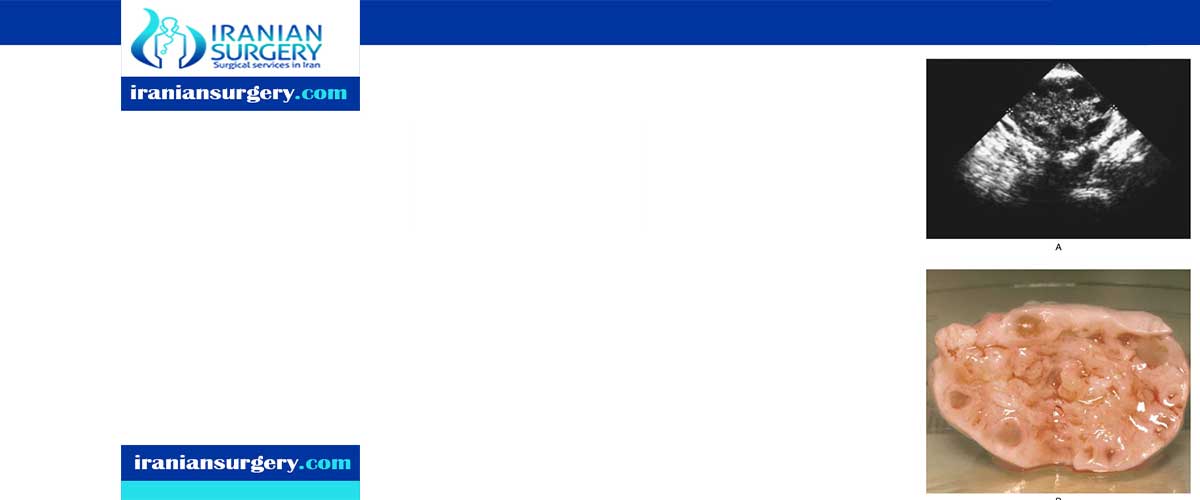Treatment of polycystic ovary syndrome

Treatment of polycystic ovary syndrome
Polycystic ovary syndrome (PCOS) is one of the most common causes of infertility in women. Polycystic ovary syndrome is one of the diseases that cannot be prevented but can be treated in several ways. If left untreated, disrupting hormonal balance can affect the whole body. Untreated syndrome, for example, can increase the risk of several diseases, including diabetes, heart disease and infertility. In this article, you will learn about the treatment of polycystic ovary syndrome, whether or not you want to become pregnant and have some self-care
Treatment of polycystic ovary syndrome for pregnancy
If you wish to become pregnant, your doctor will suggest one of the following methods:
Weight loss: If you are overweight, losing weight can help ovulate. Losing about 1 kg and 2 g to 5 kg can make your monthly habit cycles more regular.
Medications: Your doctor may prescribe a variety of medicines for your treatment, including the following medications:
Clomiphene: If losing weight does not help start regular ovulation, the next step is usually to take clomiphene citrate. A high percentage of women ovulate during the first three months of clomiphene treatment. A significant percentage of these women become pregnant during their third trimester of treatment.

Letrozole: Many experts now recommend letrozole to help with ovulation. A recent study in women with polycystic ovary syndrome showed that letrozole is more effective in regulating ovulation than clomiphene and leading to more births.
Metformin: Metformin, an insulin-sensitizing drug, also helps ovulate. Sometimes your doctor may recommend that you take this medicine alone or in combination with clomiphene or letrozole.
Gonadotropin: If other medications are not effective, your doctor may prescribe injectable medications such as gonadotropin, which may stimulate ovulation and also the development of multiple oocytes. Almost all women with polycystic ovary syndrome who use gonadotropin have ovulation and a high percentage of them become pregnant.
Surgery: If your body does not respond to these treatments or if you do not want to use them, another option is an operation called an ovary drill. In this way, the surgeon creates small holes in your ovary through small incisions in the abdomen. This can lower the levels of male hormones and may help ovulate. Unlike oral and injectable drugs, the effects of temporary ovarian drilling are temporary, but about half of women become pregnant within a year after surgery.
Infertility treatment: If none of these measures help, your doctor may recommend IVF or IVF. In this method, sperm and oocytes are combined in the laboratory and fertilization takes place. The embryos are then transferred to your uterus, which, if implanted in the uterus, becomes an embryo. Pregnancy rates vary depending on the age and fertility problems of the couple, but overall the risk of pregnancy through IVF in women with polycystic ovary syndrome is as high as in women with other infertility problems.
Treatment of Polycystic Ovary Syndrome Without Pregnancy
If you do not wish to become pregnant, you can treat the disease using metformin and contraceptives. These methods are as follows:
Contraceptive pills: Contraceptives contain estrogen and progesterone and can correct hormone imbalances. These pills regulate monthly habit cycles, reduce skin problems. It also restricts abnormal hair growth until drug use.
Metformin: Metformin is a non-hormonal drug that does not prevent pregnancy, but it can help regulate monthly habit cycles in about half of women with polycystic ovary syndrome. It can also help lower blood insulin levels and reduce excessive hair growth by reducing appetite and thus losing weight.
Self-care during polycystic ovary syndrome
Women can take extra care if they have polycystic ovary syndrome and can greatly reduce the problems associated with this complication. Tips that can help you take care of yourself include:
If you are overweight, exercise and have a balanced diet. Losing weight can help regulate your menstrual cycles, reduce cholesterol and even eliminate acne and prevent excessive hair growth. If you are insulin resistant, exercise will make your body process insulin. Ask your doctor to give you a good weight loss plan.
Pelvic examination is important for monitoring changes in the ovary or uterus. Regular exams will help identify early signs of endometrial cancer that threaten women with irregular or irregular menstrual cycles. Blood tests may be administered regularly to track hormone changes.
Reduce the risk of endometrial cancer by adjusting the monthly habit cycle performed through hormone control during pregnancy.
If excess hair is harmed, electrolysis or waxing will kill your facial and body hair.
There is no way to prevent polycystic ovary syndrome, but timely diagnosis is the best way to control its symptoms. If your menstrual cycles are irregular or have no monthly habits, see a gynecologist to help you adjust your menstrual cycle.
10 common question about Treatment of polycystic ovary syndrome
[kkstarratings]


